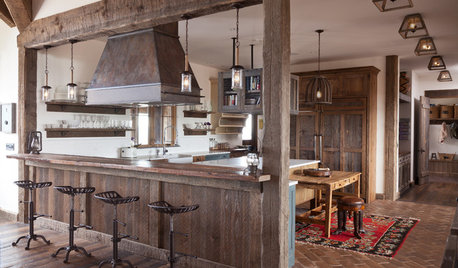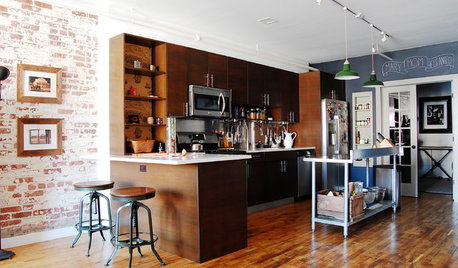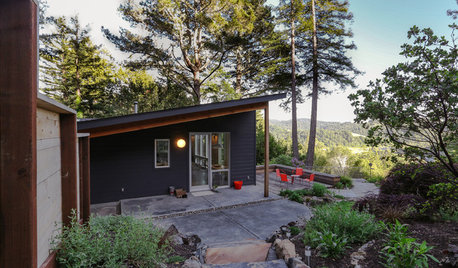Refinance or not?
harriethomeowner
17 years ago
Related Stories

ACCESSORIESTraditional Living Room Accessories for a Refined Style
Showing the objects of your affection has never been more refined. See how photographs and more can bring an elegant personality to rooms
Full Story
RUSTIC STYLEHouzz Tour: Rough-and-Tumble Refinement
Explore this barn-inspired home that’s designed for an outdoors-loving family
Full Story
FARMHOUSESHouzz Tour: A Refined Rustic Look for a New Vermont Farmhouse
An interior designer creates a stylish mountain home for her family and friends
Full Story
HOUZZ TOURSHouzz Tour: Refined Casual Style for a Gracious Farmhouse
Once a rustic weekend cabin, this spacious Georgia home now comfortably accommodates the owners and their guests full-time
Full Story
DECORATING STYLESRoyal Idea: Go Cozy and Refined With Gustavian Style
Adapt the milieu of an 18th-century Swedish king to bring soft elegance to a modern or contemporary room
Full Story
HOUZZ TOURSMy Houzz: Raw Meets Refined in an Open Brooklyn Loft
Exposed brick and rustic elements mix thoughtfully with global art and textiles in a former warehouse
Full Story
RUSTIC STYLERoom of the Day: Refining the Rustic in a Log Home
A log-heavy Colorado ski house gets a contemporary makeover that brings the soft, calm and comfy
Full Story
SHOP HOUZZShop Houzz: Relaxed and Refined French Country Living
Casually elegant furnishings and accents for ‘la bonne vie’
Full Story
VACATION HOMESHouzz Tour: Rugged and Refined Beauty in Sonoma County
Opening up rooms and adding outdoor recreation areas makes a weekend home a real retreat
Full Story
BASEMENTSBasement of the Week: Wine Inspires a Refined Renovation
Warm materials and sophisticated styling result in a Toronto basement even connoisseurs can love
Full StorySponsored
More Discussions



davidandkasie
zone_8grandma
Related Discussions
To Refinance or Not to Refinance-Help!!!
Q
Refined Modern Farmhouse Basement Flooring
Q
Sectional comparable to Crate & Barrel Axis comfort but more refined
Q
Refin Wood2 Tobacco
Q
joyfulguy
harriethomeownerOriginal Author
harriethomeownerOriginal Author
landmarker
Chemocurl zn5b/6a Indiana
harriethomeownerOriginal Author
landmarker
momtokai
harriethomeownerOriginal Author
momtokai
celticmoon
harriethomeownerOriginal Author
harriethomeownerOriginal Author
dave_donhoff
harriethomeownerOriginal Author
dave_donhoff
harriethomeownerOriginal Author
dave_donhoff
harriethomeownerOriginal Author
celticmoon
harriethomeownerOriginal Author
dave_donhoff
coolvt
harriethomeownerOriginal Author
celticmoon
harriethomeownerOriginal Author